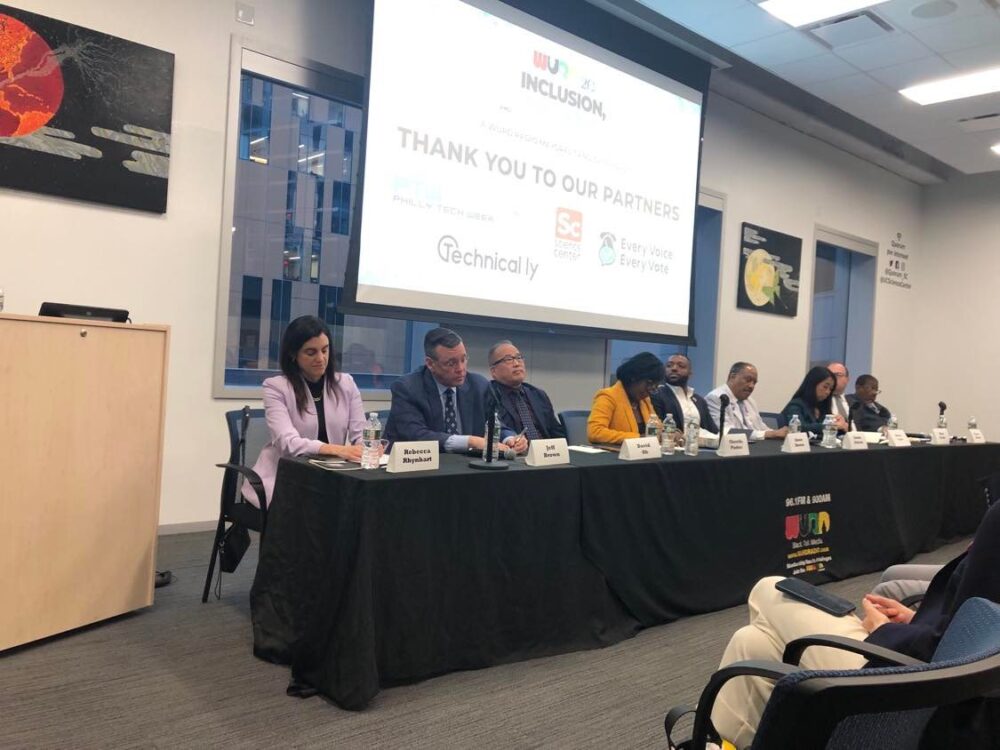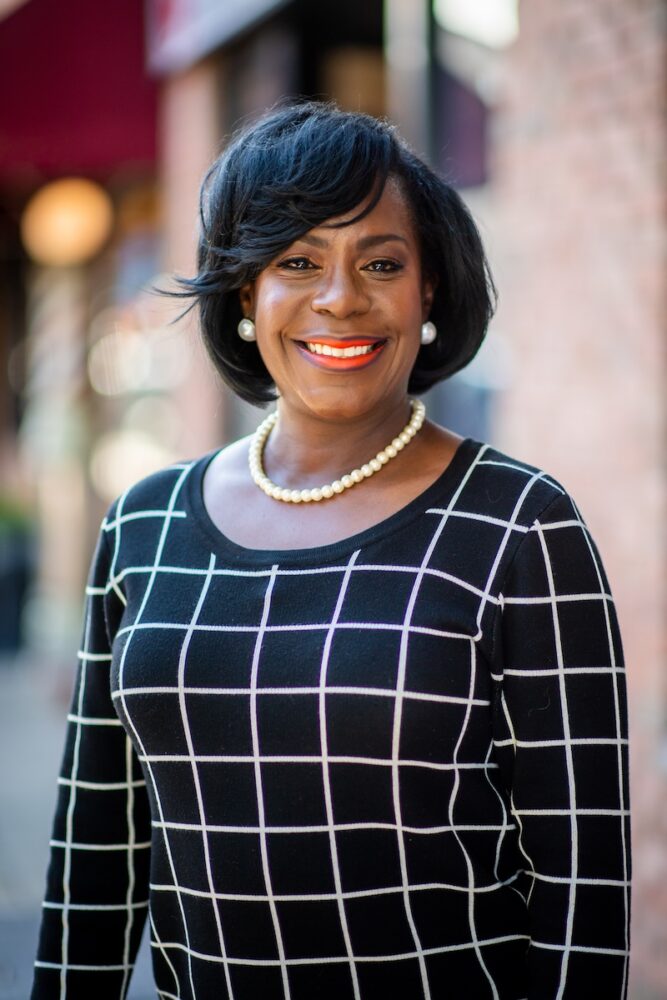Not only will Parker be the city’s 100th mayor, but also the first woman to hold the position.
This spring, Parker beat eight other candidates in the Democratic primary. Last night, she beat Republican candidate David Oh.
Parker is a native Philadelphian whose political experience includes 10 years as a state representative in Harrisburg and almost seven years as the councilperson representing Philadelphia’s 9th District.
Informing voters
Over the past year, Technical.ly participated in the Every Voice, Every Vote initiative, a coalition of Philadelphia media and community organizations working to ensure voters were well informed ahead of the election. In the spring, we gathered questionnaire responses from mayoral candidates and city council candidates about their policies.
Then, ahead of the general election this fall, we asked Philadelphians to submit questions for the two final mayoral candidates about their policies related to entrepreneurship, technology and innovation. We narrowed it down to five constituent-submitted questions focused on diversity and inclusion, workforce development, the tax code, digital equity and support for entrepreneurs.
We asked these constituents to record a short video asking their question and sent the videos to Parker and Oh. A few weeks before Election Day, we published Oh and Parker’s responses.
We also recently published two videos in collaboration with TaTa Sherise to explain election related topics in a relatable way. The comedian addressed the mayor’s influence over local economies and local government’s role in funding projects in these videos.
Parker on tech, jobs and business growth
Based on this reporting, here’s some of what we know about Parker’s stances on business and technology:
Back in January, Parker said she would hire a deputy mayor focused on minority business growth.
“It has to be somebody’s business to grow Black businesses and to make sure that communication between the Black business community, the administration and overall the City of Philadelphia is actually happening,” she said at the BBEx Wealth and Politics Summit.
At WURD Radio’s Inclusion, Innovation and Philadelphia Future mayoral forum in May, Parker said she would support the Innovate Capital Growth Fund from The Enterprise Center. She also said she would provide resources to attract and retain minority business owners.
In Technical.ly’s recent questionnaire, Parker said she would consult with businesses to make it easier for them to work with the city and simplify processes for businesses.

In the realm of workforce development, Parker said at the mayoral forum that the School District of Philadelphia and the Community College of Philadelphia should prepare students for growing industries, including life sciences and biotech, and cited lab technician training programs run through the Wistar Institute. She reiterated that point in Technical.ly’s mayoral questionnaire.
“I would like to see a stronger relationship between our public schools and Philadelphia Community College (CCP) to offer college-level courses to students,” Parker said in the questionnaire. “That coordination between our Public Schools and CCP would also benefit adults in the community who want to pursue a degree or classwork that could achieve career-advancing certifications.”
In the questionnaire, she noted that her proposed plan for year-round schooling would also introduce students to workforce development opportunities. Parker plans to work with the school district to ensure that students have access to devices and digital literacy curriculum.
Parker said technology creates more transparency between city government and its constituents, but the city also has to be mindful of cybersecurity. Technology could be useful to address crime and violence, specifically as part of a neighborhood safety and community policing plan, she said.
“In that plan, it does include an added value of us being smart when it comes to technology and supporting forensics in the labs,” she said at the forum. “It does talk about using the technology to not just identify shooters, but what about getting fingerprints using modern technology for that and so ensuring that we make sure that we protect Philadelphians from being discriminated against in every way possible, every tool that we intend on using?”







